During an appearance on “The View” earlier in December, Cynthia Nixon, known for her role as Miranda Hobbes in the HBO series “Sex and the City,” announced that she would undergo a five-day hunger strike in protest against the ongoing Israel-Hamas war.
The actor and activist announced that she would be going on this hunger strike to call attention to the plight of Palestinians who are struggling to find food and water due to Israel’s blockade.
Cynthia Nixon Explains Her Choice to Go on a Hunger Strike

Nixon made an appearance on “The View” to explain why she was joining the five-day hunger strike. “I am the mother of two Jewish children whose grandparents are Holocaust survivors,” Nixon told the panel.
“And my oldest son, in particular, he really has been reaching out to my wife and I and asking us — imploring us, really — to say, ‘Use your voice to affirm as loudly as you can that never again means never again for anyone.’”
Cynthia Nixon Condemns the Israel-Hamas Conflict
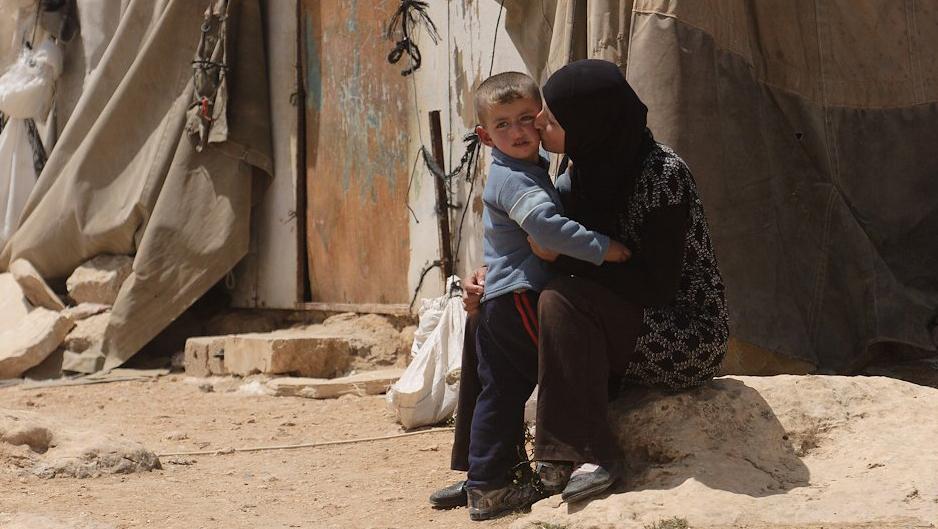
Nixon further expanded on her protest in Time and Times of Israel during a protest outside of the White House on Nov. 28, saying, “We are here hunger-striking just to sort of mirror to [President] Biden the kind of deprivation that is happening in Gaza and how he has it within his power to make a cease-fire happen.”
“None of this is normal,” Nixon said. “None of this is routine, and none of this can be allowed to continue.”
Cynthia Nixon Is Afraid of Another Genocide

Many celebrities have voiced their opinion and protest against the ongoing conflict between Israel-Hamas, with Nixon voicing her concerns about Israel’s counteroffensive since the Oct. 7 Hamas attack.
Nixon, whose family were survivors of the Holocaust in World World II, has expressed concern about the plight of the Palestinian people.
What Is Cynthia Nixon’s Hopes with the Hunger Strike?
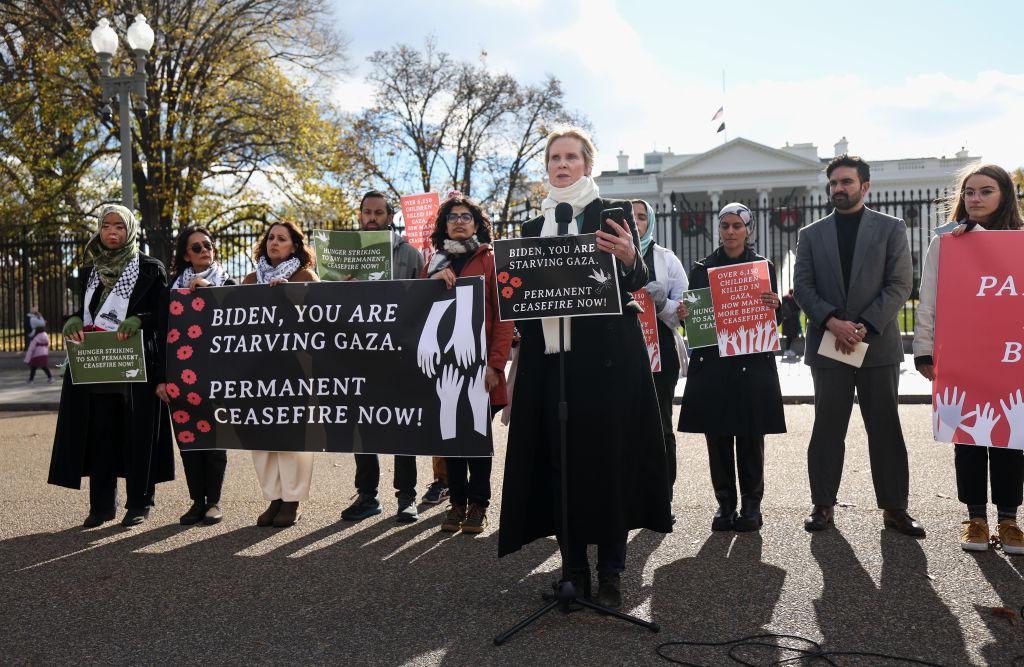
Nixon, who ran for New York governor in 2018, joined Democratic lawmakers (Rep. Madinah Wilson-Anton, Rep. Zohran Mamdani, Rep. Mauree Turner, Rep. Sam Rasoul, and Rep. Abraham Aiyash) in their five-day hunger strike.
The protest hopes to bring attention to the lack of resources in many communities within Gaza with hopes that the U.S. will step in to provide assistance to end the conflict.
The Protesters Hope to Bring Leverage Against the U.S. Action in the Israel-Hamas Conflict
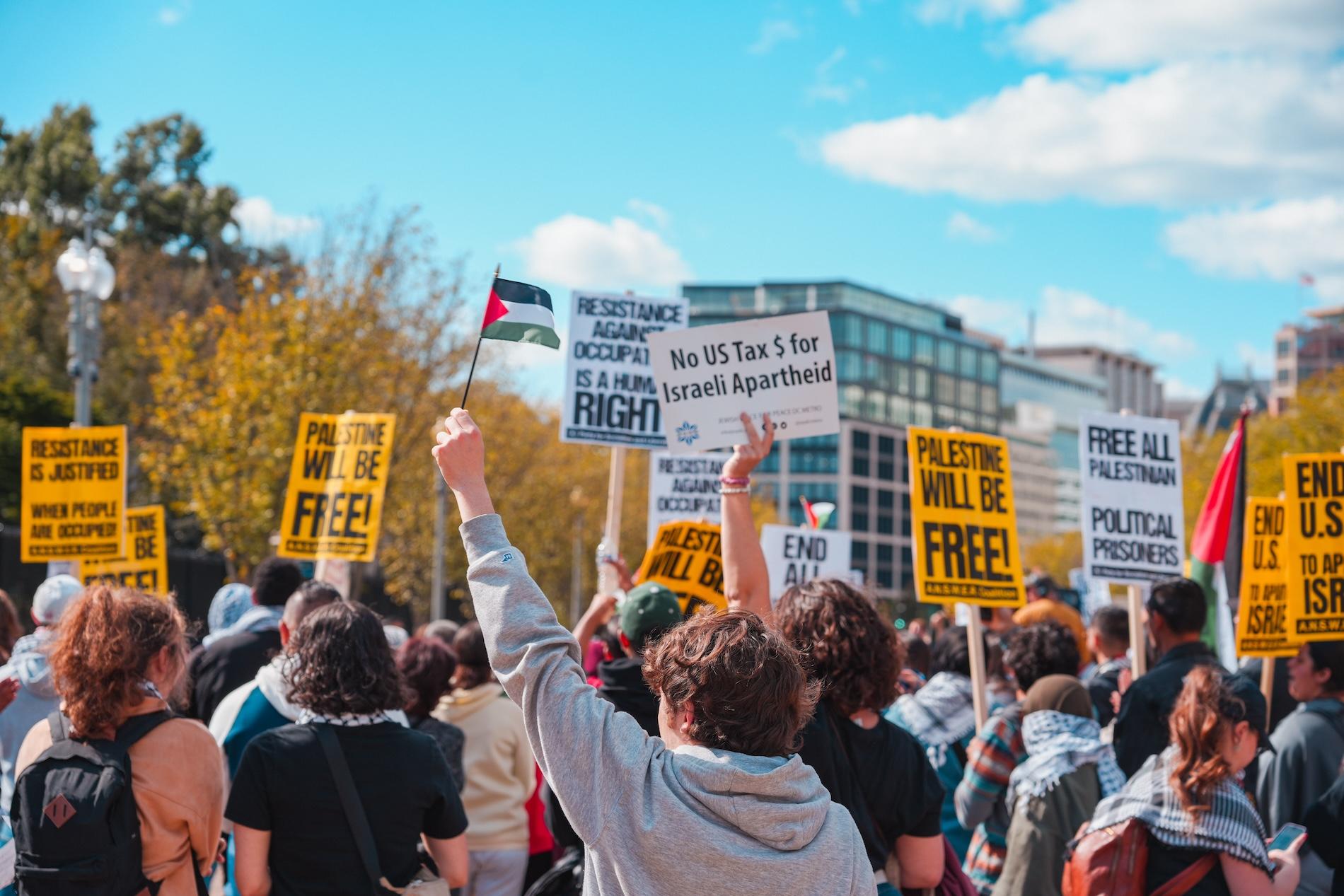
Rep. Zohran Mamdani told Time that she hopes the protest will “bring attention to the fact that the U.S. government, our president, and our congressional leaders are funding this policy of starvation. We send American taxpayer money to bomb communities in Gaza, and I don’t think our president is using his leverage to the extent that he could to bring about a permanent cease-fire.”
She continued: “The United States is not simply a witness to this genocide. It’s an actor in this genocide.”
Cynthia Nixon Compares the Deaths in Gaza to Another American Conflict

Nixon compared the atrocities that have been taking place in Gaza to past incidents that the U.S. was involved in. “We’ve seen the deaths of over 16,000 civilians, Palestinians in Gaza, which includes over 7,000 children,” she said Wednesday.
“To put that into some kind of a context, that is more civilians than were killed by the U.S. and its allies in almost 20 years of war in Afghanistan,” Nixon said.
Over Half a Million in Gaza Face Starvation
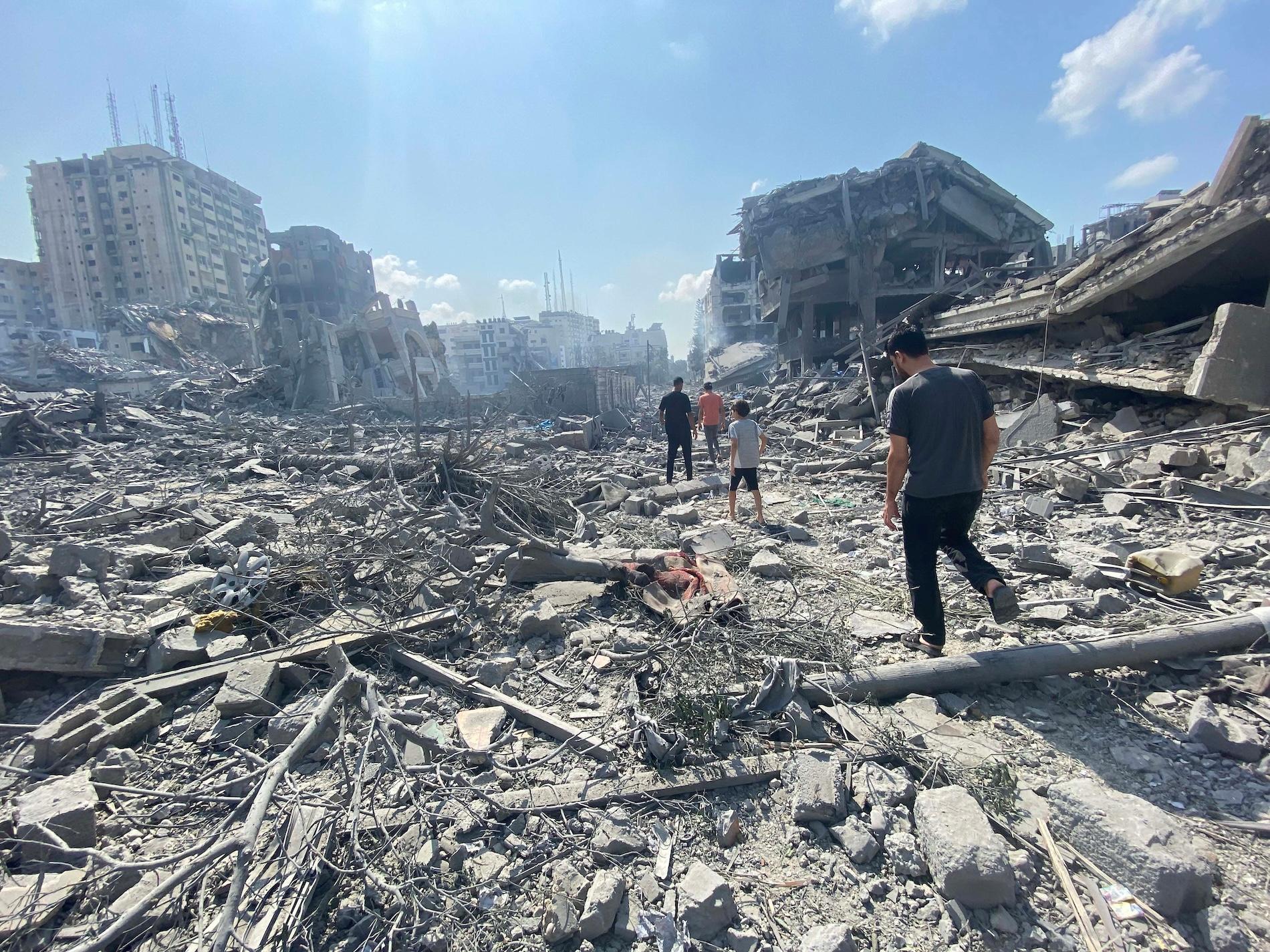
According to NBC News and data from the Palestinian Health Ministry, more than 20,000 people have been estimated to perish in Gaza. 2.2 million people have been displaced, and the U.N. warns that almost half a million face starvation.
One in four people is suffering from starvation due to the humanitarian crisis caused by Israel’s bombing and siege on the territory in response to the Hamas Oct. 7 attack.
Cynthia Nixon Explains Her Perspective on the Ongoing Conflict
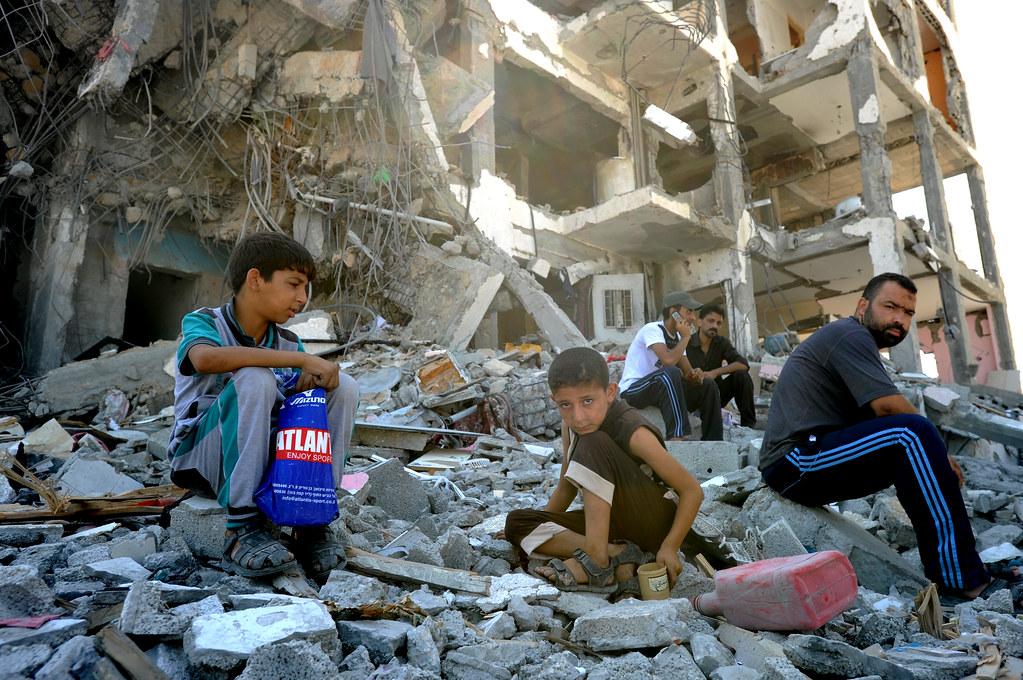
“The images coming out of Gaza, the children who have no water, who have no food, who have no homes, who have no shelter of any kind, weeping over the bodies of their slain parents,” said Nixon on the show. “This is — I mean … what Hamas did was brutal and … unforgivable.”
Nixon continued, saying, “But I don’t think we get to a better place with more civilian deaths, and that is why, in my belief, we need a permanent cease-fire,” she said. “Right now.”
The U.S. Vetoed the Ceasefire
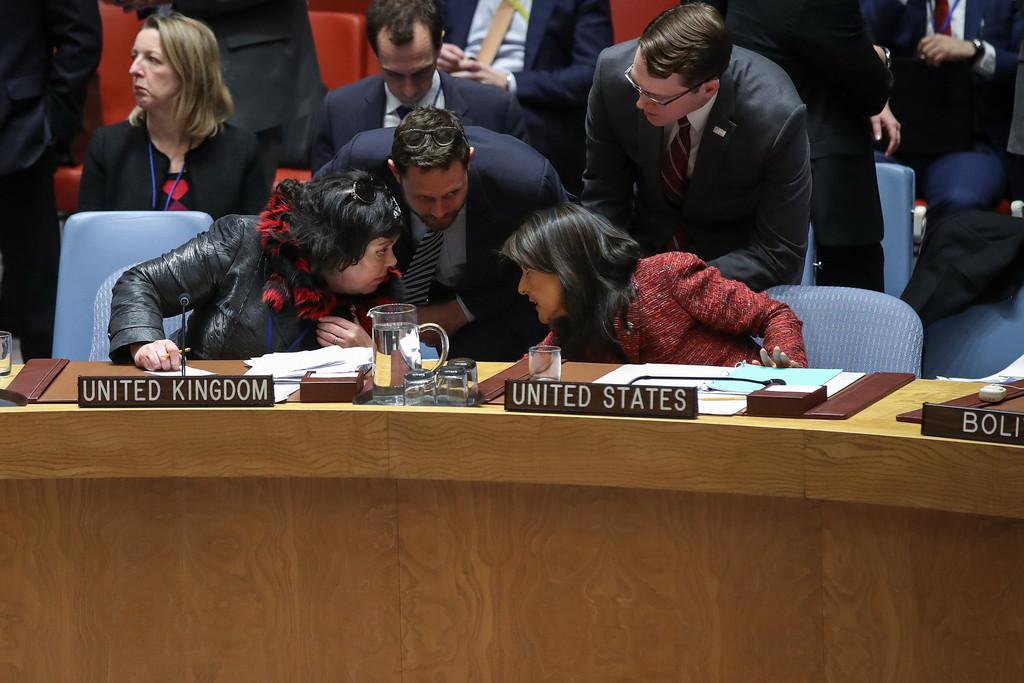
Many U.S. citizens have criticized the U.S. government’s lack of involvement in helping bring the Gaza conflict to an end. On Dec. 9, the U.S. vetoed a U.N. Security Council Resolution to call for an immediate humanitarian cease-fire in the Israel-Hamas war.
The veto of Article 99, which called for a cease-fire and was backed by more than 90 Member States, was reasoned by the U.S. Deputy Ambassador to the United Nations Robert A. Wood as an “unbalanced resolution that was divorced from reality that would not move the needle forward on the ground in any concrete way” (via Time).
Why Did the U.S. Veto the Ceasefire?

Earlier that day, Wood told the council the U.S. wanted a two-state solution but didn’t support an immediate cease-fire. Wood said that “this would only plant the seeds for the next war — because Hamas has no desire to see a durable peace, to see a two-state solution.”
Hamas strongly condemned the veto, writing in a statement, “We consider the U.S. administration to be an accomplice in the killing of our people through its political and military support for the occupation to continue its genocidal war on the Gaza strip” (via Telegram).
The U.S. Says They Won’t “Leave Hamas in Power”
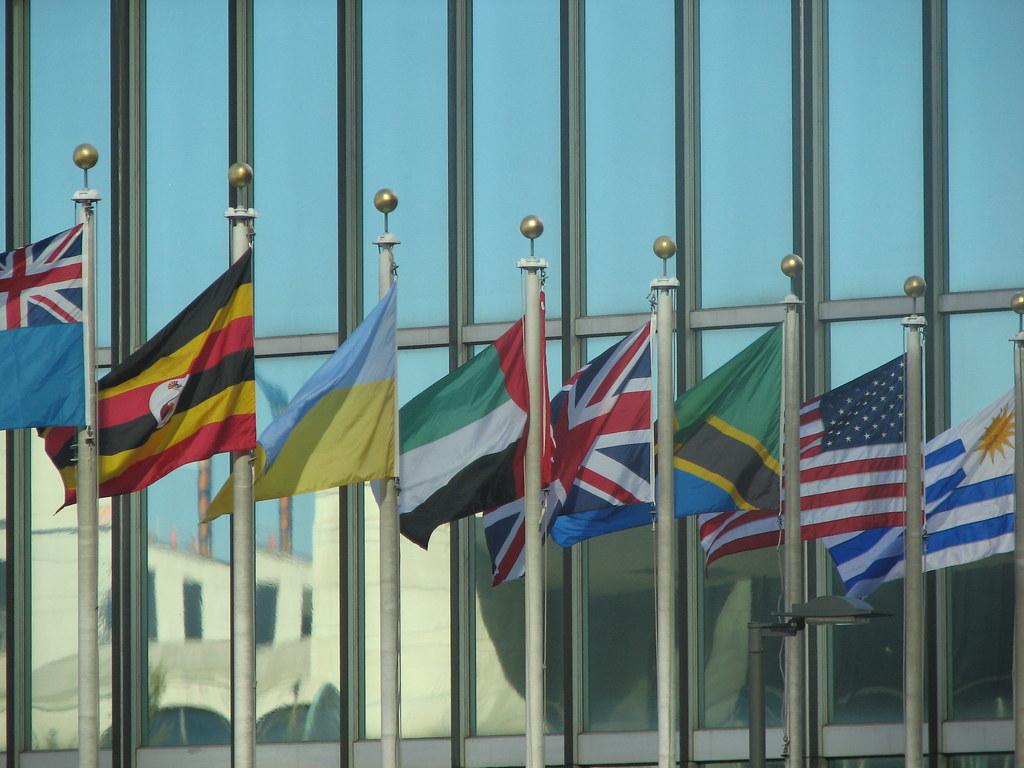
The International Rescue Committee called the failure to call for a cease-fire “unjustifiable,” while other groups specifically criticized Linda Thomas-Greenfield, the U.S. Ambassador to the United Nations. She explained her vote, saying that the U.S. “does not support any steps that would leave Hamas in power which, in turn, would undermine the prospects for a two-state solution where Gaza and the West Bank are reunited under a single governance structure, under a revamped and revitalized Palestinian Authority.”
While Nixon’s hunger strike didn’t seem to make waves in the U.S.’s decision to veto, the shame brought against the country in the U.N. might sway the world’s already sour opinion of the U.S. and its involvement in the overseas conflict.

